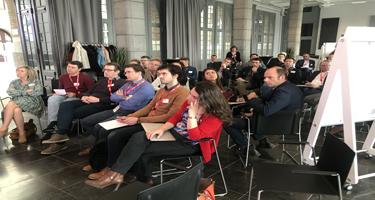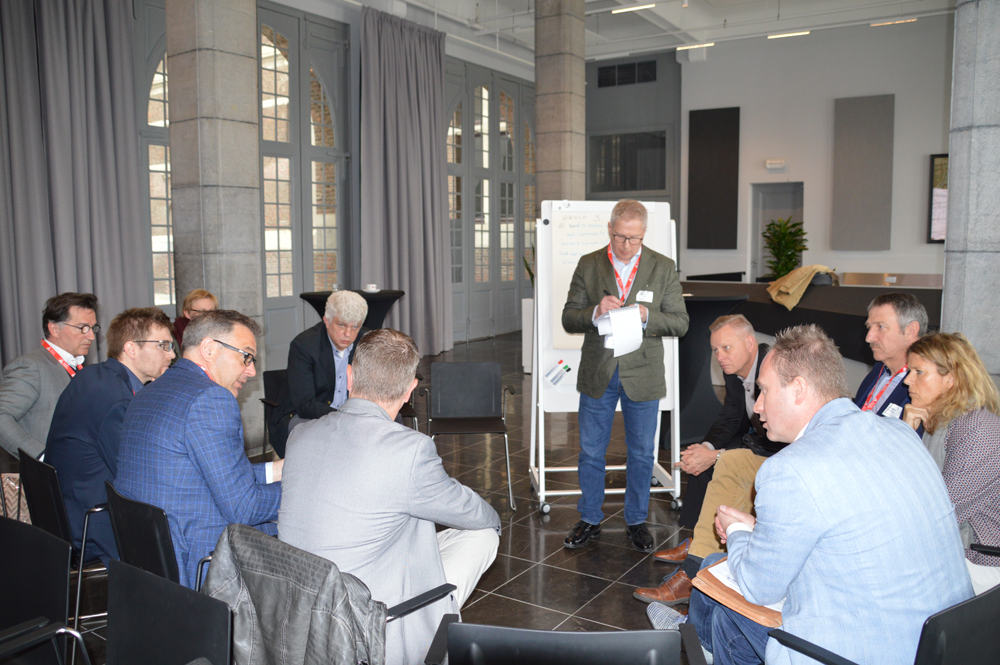
In Workshop 2 of the Trade Consultation, delegates discussed procurement strategy and the extent it took FLEGT licensing into consideration.
Key findings:
- Importers place tropical timber supply relationships under greater scrutiny post EUTR.
- The tropical timber supply pool and product variety has reduced as a result.
- Market competitiveness and environmental requirements place even greater stress on maintaining strong, long-term supply relationships
- Sustainability certification remains a greater purchasing preference than a FLEGT licence.
- A price premium cannot be charged for FLEGT-licensed product.
- Importers are not (yet) switching from other suppliers to Indonesia due to FLEGT licensing.
- There is still lack of awareness of FLEGT down the supply chain.
- Suppliers of FLEGT licensed products still have to compete on price, availability, quality and consistent delivery.
Key recommendations
- More market communication and education about FLEGT is needed down the supply chain.
- All 28 EU member states need to recognise FLEGT licences on equal footing with FSC and PEFC certification in procurement policy.
- More VPA countries need to reach the FLEGT licensing stage to boost product variety and availability.
- A FLEGT licence should become a trademark.
- Agreement is needed from all stakeholders on FLEGT’s sustainability credentials.
The EU Timber Regulation (EUTR) has shaken up EU importers’ supplier selection process. That was the consensus across the range of timber and wood products businesses at the IMM Antwerp trade consultation.
The audience operated in a wide variety of product areas. These included plywood, hardwood for interior fittings, such as mouldings, interior furniture and other manufactured goods, laminated components and exterior products, including decking, cladding, fencing and garden furniture.
Companies also sourced from suppliers worldwide. Among those listed were China, Indonesia, Malaysia, Vietnam, Thailand, Congo, Gabon, Cameroon, Brazil, Peru, Bolivia and Russia. Their customers included the construction sector, merchants and distributors, flooring, furniture, packaging and other manufacturers, and, in the case of retailer delegates, consumers.
Delegates agreed that they now put their supply chains through greater scrutiny than ever. Illegality risk assessment and the capacity of suppliers to provide adequate information to satisfy the due diligence requirements of the EUTR was a priority.
“If a supplier can’t meet our due diligence needs or supply the further proof of legality for risk mitigation, then we don’t pursue the relationship further,” said one plywood operator. As a result, said some importers, their tropical supply pool and consequently the variety of tropical products available to them, had narrowed.
Companies said their preference had always been to establish long-term relationships with suppliers in order to build mutual trust and understanding of one another’s requirements on everything from product quality to legality and sustainability assurance. The current pressures on the trade in terms of the globalisation and competitiveness of the business and requirements on legality and environmental performance had made this more the case than ever. Decade-long connections were not uncommon and one delegate said their company had traded with a particular supplier for over 40 years.
Getting a supply relationship right from the start was key, and delegates said this could take anything from six months to a year, even two. This provided the opportunity to assess a suppliers’ track record and evaluate consistency of product quality, performance and delivery.
Nurturing tropical supply relations
It was also important to nurture these relationships through regular communication and also, where feasible, face to face contact. Importers across the range of products said that they might visit suppliers up to four times a year, sometimes more. It’s about ensuring production standards haven’t slipped, evaluating new products and also consolidating trust and commitment between parties. It’s also an opportunity to keep suppliers abreast of any developments in the EUTR and other regulation and standards and in importers’ customers’ requirements.
Some companies also said they worked with suppliers on product and business development, to the extent of co-funding introduction of new products or capital investment projects.
Alongside the supplier’s capacity to provide the necessary details to satisfy due diligence requirements, ongoing reliability was also vital. The relationship would only last if they could continue to consistently provide the product the importer requires, in the volume they need and when they need it.
On the significance of FLEGT licensing to a supply relationship, importers qualified their comments by saying it was constrained by the fact that the variety and availability of licensed products was restricted by only being supplied by Indonesia. Within that context, it was a ‘nice to have’ rather than a ‘must have’. It removed the administrative burden and cost of further due diligence under the EUTR and one importer said it was a useful adjunct to FSC certification. Their certified Indonesian bangkirai decking had previously required ‘extra work’ in terms of legality assurance, but FLEGT licensing meant that was ‘dealt with at source’. As a result the supplier could now provide a legally assured, sustainably certified package.
But delegates said that certification remained the preference for customers, who knew about FSC and PEFC, but still had little awareness or understanding of FLEGT. Consequently none said they had switched to Indonesian from other suppliers because of FLEGT licensing. 
No price premium for FLEGT licence
A FLEGT licence also could not incur a price premium as customers had ‘the right to expect product legality and could not be charged for it’. Nor, said a plywood importer, did having a licence mean a product did not have to compete on price. “Evidence of this is that cheaper Russian plywood, which due to greater investment in technology has also become a better quality, more consistent product, has been taking Indonesian market share,” he said.
To elevate FLEGT licensing as a purchasing preference or priority, the consensus was that more communication was needed down the supply chain from the EU, the Indonesian authorities, and also from Indonesian suppliers. A clear, consistent and widely agreed message on FLEGT’s sustainability credentials in terms of wider environmental, economic and social impacts, would also help, as would recognition of FLEGT licences in government timber procurement policy in all 28 EU member states. The topic of creating a logo for FLEGT was also raised once more, with delegates saying it needed to become a trademark.
To achieve greater market impact and awareness more countries also needed to implement their VPAs and start FLEGT licensing as soon as possible in order to boost the variety and availability of licensed product.
